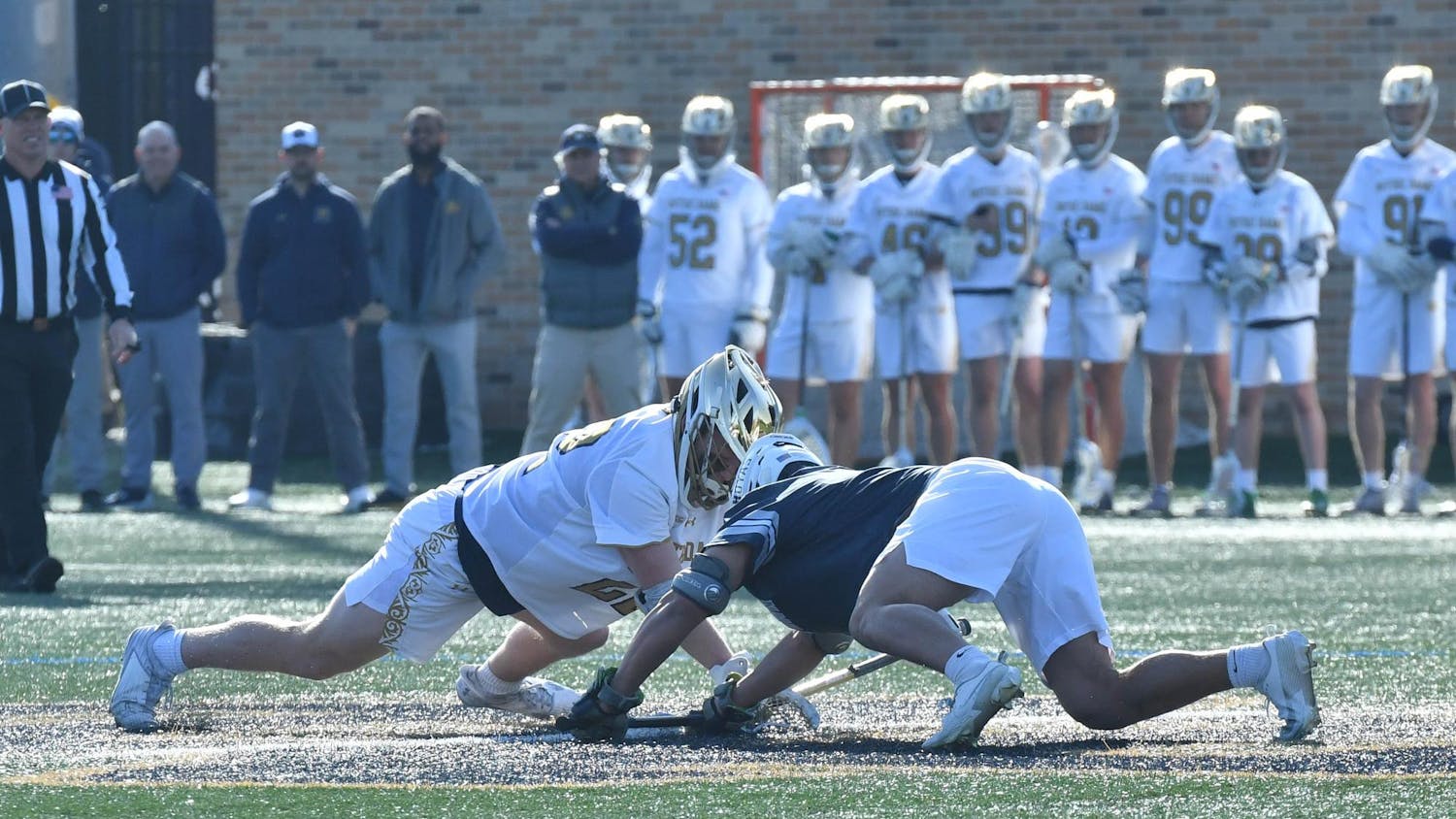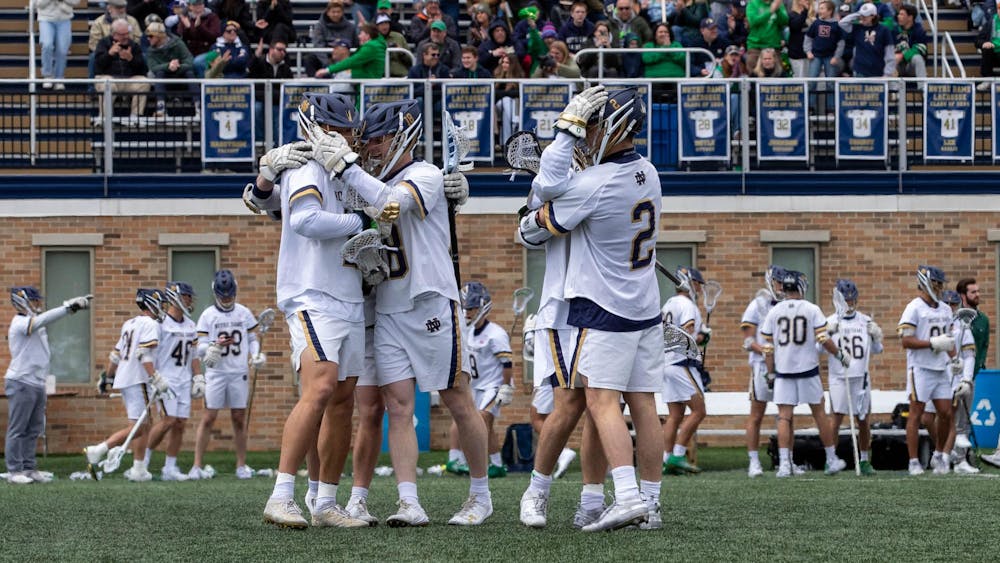We've all heard the familiar refrains about globalization in our classes at Notre Dame. We've been told the movements toward a global world will affect business, communication and culture. I've learned first-hand it also affects sports, and that has led me to a conclusion that will be unsettling to many — the NFL is no longer just America's game.
One of the unique qualities of Notre Dame's London program is its possession of dozens of tied-in internships with prestigious businesses, banks, art galleries and even members of Parliament. My search for an internship led me to spurn a more career-oriented position — as an accounting major, a position in financial control would have boosted my resume — to live the dream of many an American sports fan and seek the chance to represent the National Football League.

This dream came true, and for the last four months I have worked 15 hours a week as an intern in the Public and Media Relations Department for the NFL UK, and in the process just about every preconceived notion I held about the NFL's place in the world sporting scene has been shattered.
The internship is centered on the preparation for and execution of the NFL International Series game — a regular season game played every October at Wembley Stadium in London.
As a member of the public relations team, my main task was to maintain and develop relationships with fans on the web and through the press. I expected, based on the perceptions I had of British sports fans, I would run into very predictable roadblocks. Fans of sport in England are very clear on what sports they like, and in which order they like them. Football (our soccer) comes first, rugby second and cricket third. Just as many American sports fans are reluctant to embrace soccer due its perceived "un-American" culture, I thought that British fans would see something about American football and the NFL as being "un-British" or "foreign" and reject it as a result.
How wrong I was. The British NFL fan is dedicated, passionate, knowledgeable and actively involved in promoting the game to their less enthusiastic counterparts. Several fans I called told me stories of staying up late (we're talking 4 a.m. late) to watch the 1980s Chicago Bears and Mike Ditka play on small TVs, and the resulting bleary-eyed Mondays in the workplace.
For Americans, the NFL is a constant, enduring presence. For a British fan, it is a labor of love.
The love affair doesn't stop at the borders of the UK, either. Fans from Germany, Italy, the Republic of Ireland, Spain, Denmark and Sweden all populated the list of registered followers I worked with for months. Each fan's uniquely personal story usually culminated with an impassioned plea to me to try and get the NFL to play a game within the borders of his or her country.

When Oct. 23 rolled around, I got to see in-person why these fans were so desperate for a game as the NFL International Series was played in London between the Chicago Bears and the Tampa Bay Buccaneers. More than 75,000 fans packed Wembley Stadium, the home of the English national soccer team, clad in NFL jerseys representing all 32 teams and even teams from local British leagues. Though I worked in various functions throughout the game, the moment I will take with me came as I found a free moment during the singing of the National Anthems.
During the Star Spangled Banner, fans throughout the stadium held up placards bathing the stadium in a design of the American flag. When God Save the Queen followed, the cards flipped over and the stadium bore the mark of the famous Union Jack flag.
It was a beautiful moment. For a second, everything American was British, and vice versa.
More than anything we can learn in class, that is globalization in its purest form. The NFL has committed to expanding its international efforts in coming years. It may go to Germany, China, Ireland, and beyond, but one thing is certain: America's game is becoming one of the sporting treasures of the world.












